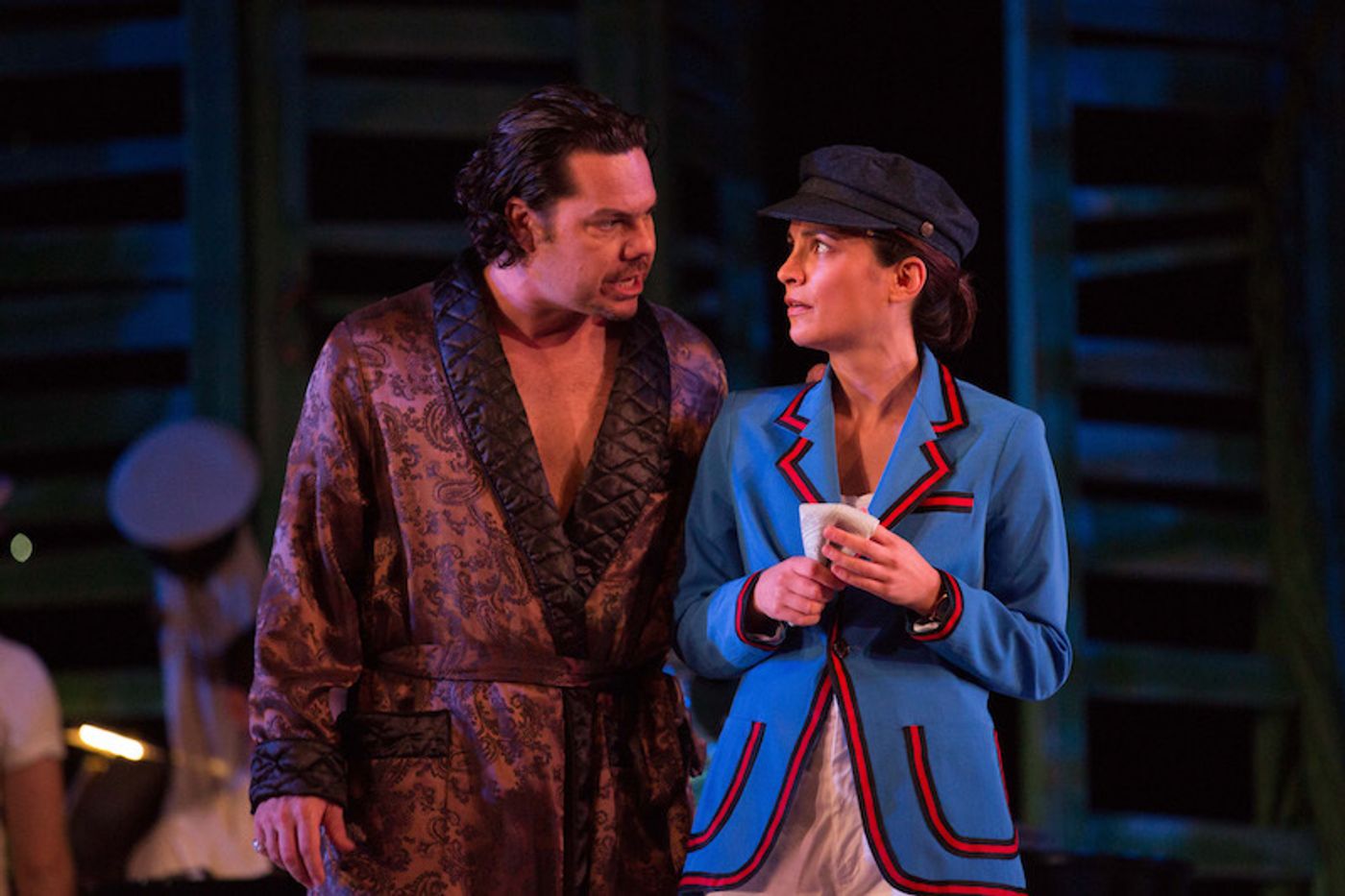TWELFTH NIGHT Plays On

Written by William Shakespeare, the dark comedy tells the story of unrequited love, mistaken identity, the idea of madness, trickery, adventure and the extraordinary things that love can make us do. Admittedly, the narrative of Twelfth Night can be hard to follow for those that aren't familiar with the piece or with Shakespeare's obsession with subplots, which are all magically woven together and tied with a bow at the end. The plot unfolds with a shipwreck which separates Viola from her twin (Sebastian) who, in order to survive in the foreign land of Illyria, disguises herself as a boy and works as a page to Duke Orsino. Not long into the plot, there is a love triangle between the Countess Oliva who falss in love with Cesario/Viola, Cesario/Viola who has falls in love with Orsino and Orisino who falls in love with Olivia. Meanwhile, Olivia's uncle Sir Toby Belch, his friend Sir Andrew Agruecheek and servant Maria formulate a mischeivous plan to reveal the aspirations and self-love of Olivia's head steward Marvolio (who's now a woman called Malvolia), who disapproves of their frequent partying ordeals. Hence, they forge a letter from Olivia's hand to Marvolio, tricking him into believing that the countess is head over his heels from him. And while all this is happening, it's revealed that Sebastian (Viola's twin) survived the shipwreck and is making his way toward the palace with his companion Antonio, a noble prince, in tow.
If you guessed that this is when all of the sub-plots converge then you are right. Sir Andrew's affections for Olivia lead him to be extremely jealous of Cesario/Viola (seriously, everyone loves Olivia) and so they take part in a duel, in which Antonio enters, mistakes Cesario/Viola for her brother, defends his friend and is sent to prison. A similar thing happens a few pages later, when Sir Andrew mistakes Sebastian for Cesario/Viola and then Olivia doing the same thing, although Sebastian doesn't seem to be bothered by it. They are soon married and Marvolia is locked up in a dark room for being a madman, all the while being psychologically tortured by Maria, Sir Toby and Feste. Finally, as Antonio accuses Cesario/Violet of betraying him, Sebastian enters, the twins see each other and leap into each other's arms after making sure that they are in fact siblings through an extensive questionnaire. The curtain falls with Olivia and Sebastian being allowed to stay married, Orsino realising his own attraction to this new 'Cesario' and promising to wed her and Malvolia seeking revenge on his tricksters. In short, a half-happy ending.
As one of Shakespeare's most musical plays, legendary music composer Tim Finn explores Shakespeare's musical universe with writing and music which he extracted from the play and blended together with his own lyrics. The music is a plethora of feeling; traversing between Viola's pain of loss, Olivia falling in love and Sir Tony, Sir Andrew's and Maria's drunk silliness. And boy, could these actors sing. Liz Buchanan was a haunting Olivia, Bryan Probert (Sir Tony) sang beautifully too, even as a drunkard and Sandro Colarelli (Feste) was the energetic discotheque narrator that we didn't know we needed, with a voice as smooth as velvet.
I have never seen such a beautiful set in my entire life. I am in awe of how Tracey Grant Lord created such a majestic, colourful revolving stage, which was similar to that of Gazebo the we all know and love from Sound of Music only six times bigger, with colourful lights hanging from the ceilngs, divergent palettes for each room and a live band in the middle, who were a joy to watch. With the actors traversing both on the set and beside the set whilst it was in motion, it made you wonder how they didn't get seasick. Ben Hughes' lighting design complimented the colours of the set, highlighting the darkness that consumed the characters and the plot, with Feste singing a chilling song in the dark.
In most instances, there are one or two actors that carry the show on their shoulders and whilst the central characters of Viola (Jessica Tovey) and Olivia (Liz Buchanan) could not have been better suited to their respective roles, each actor played a part in this aesthetic musical mayhem. Christen O'Leary commanded the stage as Malvolia, her letter scene leaving cramps in my stomach from all of my laughter and resulting in cheers of encouragement and thunderous applause from the audience. And then there were the cross-gartered, bright yellow stockings that O'Leary wore as she sang and danced on the table, flashing everything and anything she could to the audience in amongst her dialogue. Another favourite was the comic duo of Probets and Smith, who complimented each other characters perfectly in their dialogue, gestures and dances both drunk or sober. Jason Klarwein was a fantastic choice for Orsino, who played very well off of Tovey; their chemistry believable and real. And, from the audience, you could tell how much fun not just the characters but the actors were having on stage, which is always a joy to watch.
Often people don't realise how hard it is to do a Shakespearean piece, let alone an adaptation. There is a multitude of things that can go wrong but I can safely say, that this production was seamless. As a massive Shakespeare fanatic, I'd like to think that the Bard would lower his hat to Sam Strong for his stellar direction and adaptation of this canonical piece. I know I certainly am.
Show: Queensland Theatre's Twelfth Night
Where: QPAC (Queensland Performing Arts Centre)
When: 29 April - 19 May 2018
Bookings: www.queenslandtheatre.com.au or 136 246

Videos

